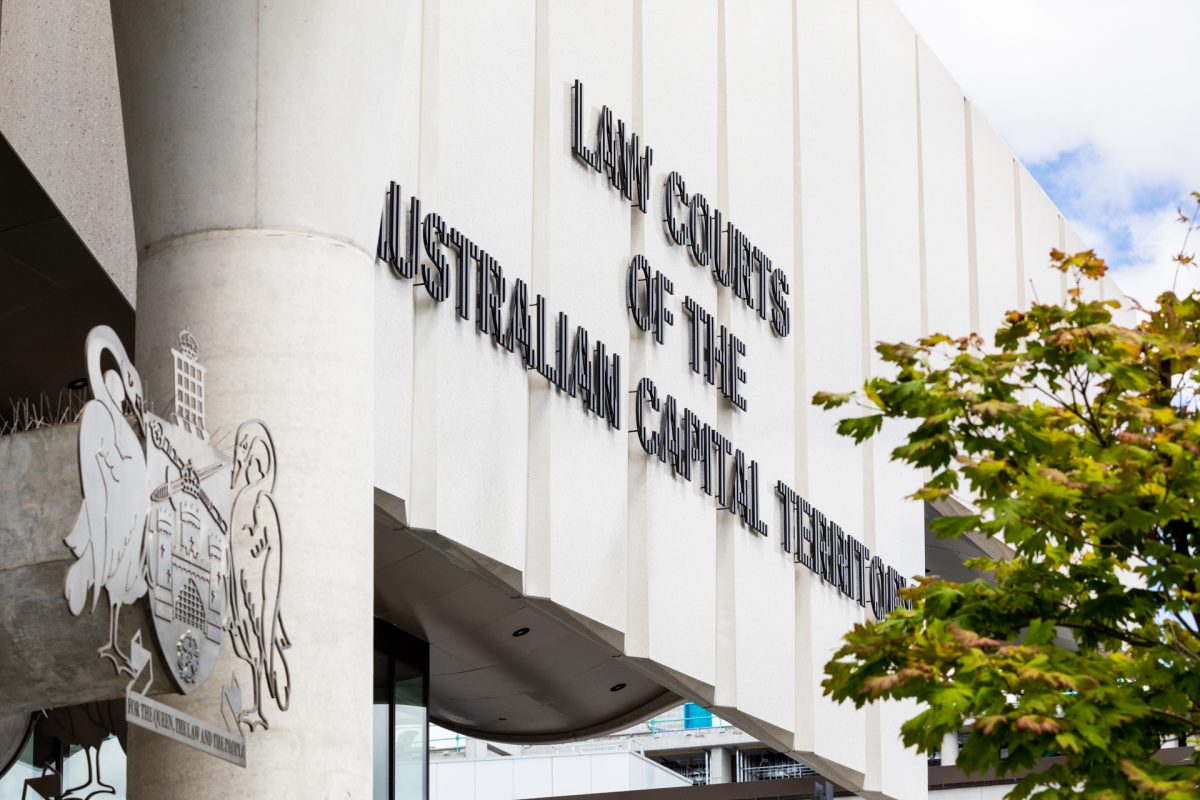
This sign was posted in the window of the Central Café in Gungahlin in 2017. Photo: File.
A former kitchenhand who contracted food poisoning during a salmonella outbreak at the café she worked in has been awarded more than $65,000 in damages.
In early February 2017, a number of people contracted salmonella after eating at the Central Café in Gungahlin.
The ACT Supreme Court’s Justice Belinda Baker said an inspection by ACT Health found the café had breached the Food Act 2001 and was closed for a month.
“Photographs of the café amply demonstrated that cleanliness at the café was severely lacking when the café was inspected on 10 February 2017,” she said.
The inspection reported there was no soap or hand sanitizer, the cool room and fridges were not under temperature control and fresh chicken was stored in the cool room at 9.5 degrees Celsius.
A health inspector said “potentially hazardous food” such as chicken must be kept at or below five degrees Celsius.
Also, the inspection collected frozen cooked chicken with salmonella typhimurium, the same type of bacteria the people had contracted.
Yaman Kasirga, who had taken over the café in December 2016, went on to plead guilty to three food safety offences and was fined $4500 by the ACT Magistrates Court in 2018.
Meanwhile the plaintiff in the Supreme Court case was aged 15 and had been working as a casual kitchenhand in the café before getting hospitalised with salmonella typhimurium in February 2017.
She alleged she contracted salmonella while working at the café, became critically ill, was left completely debilitated for a number of months and still suffers from long-term physical and psychological effects as a result.
She claimed damages against Askim Pty Ltd ATF the Askim Trust trading as Central Café Group, which owned the café at the time.
Central Café Group fought the claims, arguing in part that she hadn’t established she contracted salmonella poisoning from the café or that the risk of salmonella poisoning was foreseeable.
It also argued the day of the health inspection reached 41 degrees Celsius.

The civil case was heard in the ACT Supreme Court. Photo: Michelle Kroll.
Justice Baker noted if untreated, salmonella poisoning could be fatal.
She said six other people contracted salmonella at the café, including one who remained in hospital for a week, never fully recovered and had to have a large part of her stomach removed.
“She gave evidence that the salmonella poisoning has led to ‘life long scars’, both physical and psychological,” the judge said.
An expert told the court salmonella poisoning was a “food handler’s disease” and may be ingested by consuming or handling contaminated food or touching contaminated surfaces.
“It could have been on the surface of the grilles in the fridge, on the door handles. It could have been anywhere,” the consultant physician and gastroenterologist at St Vincent’s Clinic, Dr Christopher Vickers, said.
Justice Baker was satisfied on the balance of probabilities that the kitchenhand contracted salmonella when handling raw meat while working at the café. Similarly, she found the failure to provide soap and store food at an appropriate temperature were necessary conditions of the kitchenhand getting salmonella.
She also said while the kitchenhand developed a food phobia due to her salmonella poisoning, this had improved significantly.
While the judge found Central Café Group was liable in negligence for the kitchenhand contracting salmonella, she didn’t accept she had been as ill as she claimed nor suffered ongoing injuries to the full extent alleged.
“Accordingly, the damages to be awarded are substantially less than those sought on behalf of the plaintiff,” she said.
She awarded $65,573 in damages.
Original Article published by Albert McKnight on Riotact.





